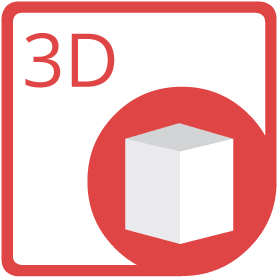
Convert USD to OBJ via Java
USD to OBJ conversion using Java library without any 3D modeling software.
How to Convert USD to OBJ Using Java
In order to render USD to OBJ, we’ll use
API which is a feature-rich, powerful and easy to use conversion API for Java platform. You can download its latest version directly from
and install it within your Maven-based project by adding the following configurations to the pom.xml.
Repository
<repository>
<id>AsposeJavaAPI</id>
<name>Aspose Java API</name>
<url>https://repository.aspose.com/repo/</url>
</repository>
Dependency
<dependency>
<groupId>com.aspose</groupId>
<artifactId>aspose-3d</artifactId>
<version>version of aspose-3d API</version>
<classifier>jdk17</classifier>
</dependency>
Steps to Convert USD to OBJ via Java
Java programmers can easily convert USD file to OBJ in just a few lines of code.
- Load USD file via the constructor of Scene class
- Call the Scene.save method with OBJ’s format.
- Check resultant OBJ file at specified path
System Requirements
Before running the Java conversion code, make sure that you have the following prerequisites.
- Microsoft Windows or a compatible OS with Java Runtime Environment for JSP/JSF Application and Desktop Applications.
- Get latest version of Aspose.3D for Java directly from Maven.
Java 3D Scene Manipulation Library
Aspose.3D is a CAD and Gameware API to load, modify and convert 3D files. API is a standalone and does not require any any 3D modeling or rendering software. One can easily use API for USD, Discreet3DS, WavefrontOBJ, STL (ASCII, Binary), Universal3D, FBX (ASCII, Binary), Collada, glTF, PLY, GLB, DirectX and more formats.USD What is USD File Format?
A file with .usd extension is a Universal Scene Description file format that encodes data for the purpose of data interchanging and augmenting between digital content creation applications. Developed by Pixar, USD provides the ability to interchange elemental assets (such as models) or animation.
Read MoreOBJ What is OBJ File Format?
OBJ files are used by Wavefront’s Advanced Visualizer application to define and store the geometric objects. Backward and forward transmission of geometric data is made possible through OBJ files. Both polygonal geometry like points, lines, texture vertices, faces and free-form geometry (curves and surfaces) are supported by OBJ format. This format does not support animation or information related to light and position of scenes. An OBJ file is usually an end product of the 3D modeling process generated by a CAD (Computer Aided Design). The default order to store vertices is counter-clockwise avoiding explicit declaration of face normals. Though OBJ files declare scale information in a comment line yet no units have been declared for OBJ coordinates.
Read MoreOther Supported Conversions
You can also convert USD into many other file formats including few listed below.